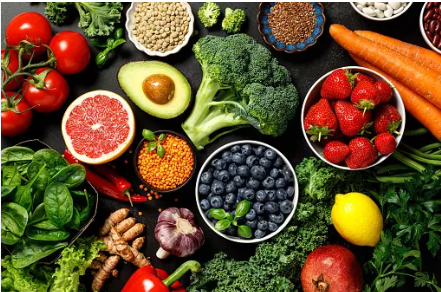

Introduction to food festivals and their cultural significance
Food festivals are a feast for the senses, bringing together vibrant flavors, lively music, and rich cultural traditions. They offer a unique opportunity to explore the heart of a community through its culinary customs. More than just an occasion to indulge in delicious dishes, these festivals serve as communal gatherings that celebrate history and identity.
From street vendors dishing out local delicacies to grand showcases of regional specialties, food festivals create connections among people—both locals and visitors alike. As you wander through bustling stalls filled with tantalizing aromas and colorful displays, it becomes clear that every bite tells a story worth sharing. Join us on this journey as we delve into the fascinating world of food festivals around the globe and discover their true significance beyond what’s served on your plate.
The history and evolution of food festivals
Food festivals have roots that stretch back to ancient civilizations. Early agricultural societies celebrated harvests with feasts, honoring deities and ensuring bountiful crops. These gatherings were vibrant events filled with music, dance, and community spirit.
As time progressed, food festivals adapted to reflect local customs and culinary innovations. The Middle Ages introduced fairs where merchants showcased regional delicacies alongside crafts. This blend of commerce and culture set the stage for modern festivities.
The 19th century saw a surge in gastronomic celebrations tied to national identities. Countries began showcasing their unique flavors as a way of promoting tourism and cultural pride.
Today’s food festivals are diverse; they range from street food extravaganzas in bustling cities to intimate farm-to-table events in rural areas. Each festival tells its own story while connecting people through shared culinary experiences—an evolution that continues to thrive globally.
How food festivals showcase a country’s heritage and traditions
Food festivals serve as vibrant showcases of a country’s rich heritage and traditions. Each dish tells a story, often rooted in centuries-old practices handed down through generations.
Take Italy’s Sagra del Tartufo, for instance. This truffle festival isn’t just about the delicacy; it celebrates the deep connection between local communities and their land. It highlights age-old techniques of foraging, passed from parent to child.
In Japan, events like Hanami focus on cherry blossoms but also celebrate seasonal cuisine tied to cultural rituals. The food becomes an extension of nature’s beauty and symbolizes renewal.
Through these gatherings, participants engage with traditional cooking methods and local ingredients—each bite steeped in history. Festivals create a sense of belonging as communities unite over shared culinary experiences that reflect their unique identities.
Impact of food festivals on local economies and tourism
Food festivals act as a catalyst for local economies. They draw visitors from far and wide, creating a buzz that can benefit small businesses and artisans alike.
Local vendors thrive during these events, showcasing their products to new audiences. This exposure often leads to increased sales long after the festival ends.
Tourism sees a significant boost too. Visitors flock not just for the food but also to experience unique cultural offerings. Hotels, restaurants, and attractions see higher foot traffic during festival periods.
Moreover, many festivals focus on regional specialties. This emphasis fosters pride in local ingredients and culinary traditions while promoting sustainable practices in farming and production.
Craft workshops or cooking classes associated with these festivals further enhance visitor engagement. Attendees leave with memories—and sometimes skills—that enrich their understanding of the culture behind the cuisine.
Experience and benefits of attending a food festival
Attending a food festival is like stepping into a vibrant tapestry of culture. Each stall tells a story, from regional dishes to age-old cooking techniques.
You get to taste unique flavors that may never cross your path otherwise. The excitement of sampling local delicacies creates an unforgettable experience for your palate.
Beyond the taste, the atmosphere buzzes with energy. Live music and performances often accompany these events, making it more than just about eating.
Meeting fellow food lovers adds another layer of enjoyment. Conversations spark over shared tastes and recommendations while forging connections across diverse cultures.
Participating in workshops can enhance your culinary skills too. Learning directly from chefs and artisans offers insights you won’t find in cookbooks.
It’s not just about satisfying hunger; it’s about immersing yourself in rich traditions and discovering new perspectives through food.
Conclusion – why food festivals are more than just about the food
Food festivals transcend mere culinary experiences. They are vibrant celebrations of culture, heritage, and community spirit. Each dish served at these events tells a story—of traditions passed down through generations, of local ingredients that reflect the land’s bounty.
Attending a food festival offers a chance to immerse oneself in the local way of life. It’s about connecting with people who share their passion for food and culture. The laughter, music, and dance create an atmosphere rich in camaraderie and joy.
Moreover, these gatherings foster appreciation for diverse cuisines globally. They bridge cultural gaps while celebrating what makes each tradition unique. Through shared meals and stories, participants cultivate understanding across different backgrounds.
The economic impact cannot be overlooked either; they boost tourism and support local businesses. Restaurants flourish as visitors seek to replicate the flavors experienced at festivals long after they’re gone.
Food festivals embody much more than delicious dishes—they encapsulate human experience itself: connection through flavor, celebration of identity, and recognition of our shared love for good company around the table.
